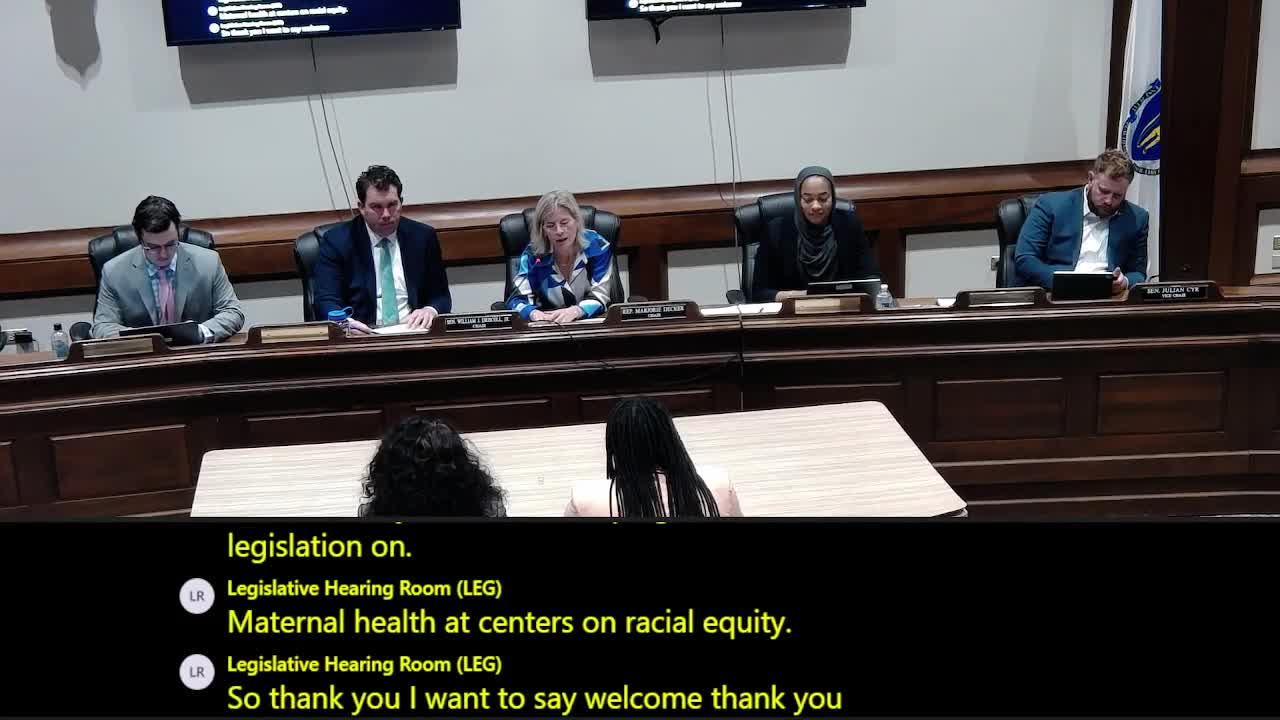Experts call for full implementation of Massachusetts maternal‑health law and expanded supports for Black birthing people
Get AI-powered insights, summaries, and transcripts
Subscribe
Summary
Representatives of the Center for Black Maternal Health and other maternal‑health advocates told the committee to prioritize implementation of last year's maternal omnibus law, equitably reimburse midwives/doulas and improve race‑specific maternal data and birth‑center regulations.
Dr. Ndidi Emaka Mutonukaga, director and founder of the Tufts Center for Black Maternal Health and Reproductive Justice, told the Joint Committee on Public Health that Black women in the U.S. die at two to three times the rate of white women and that maternal morbidity remains significantly higher for women of color in Massachusetts.
Dr. Mutonukaga urged full and equitable implementation of the Massachusetts maternal omnibus (House Bill 4999, passed August 2024) and listed priorities: equitable reimbursement models for midwives, doulas and community health workers; updated birth‑center regulations prioritizing accessibility; expanded maternal mental‑health services; improved race‑specific maternal health data for real‑time tracking; and support for bills she cited as H.1456 and S.1199 to require private insurers to cover the full spectrum of pregnancy‑related care without cost sharing.
Why it matters: Witnesses said policy passage is insufficient without targeted implementation, particularly for historically underserved communities. Dr. Mutonukaga testified that 84% of maternal deaths are preventable and that investments in workforce pipelines and payment parity are crucial for reducing disparities.
What’s next: Advocates asked the committee to prioritize implementation funding and regulatory changes, expand reimbursement authority for doulas and midwives, and improve data collection and community‑based research partnerships that center Black and Brown birthing people.
